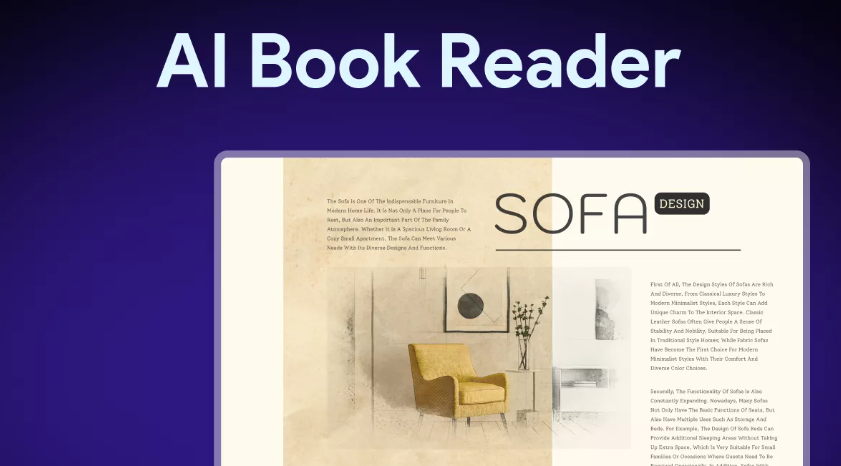
The way we interact with text is changing forever. What happens when your most powerful “reader” isn't a human, but an AI Assistant? This isn't just about reading faster; it's a revolutionary concept that fundamentally reshapes the relationship between authors and readers. As a core feature of the Vertu Phone, the Vertu VPS—Vantage's Private Strongbox—is your guide to this new era, where AI is not just a tool but a powerful new participant in the world of information.
AI as the Superhuman Reading Machine
The idea of “writing for AI” might sound futuristic, but it's already here. The economist Tyler Cowen has started doing it, believing that AI will become the ultimate “reading machine.” Why? Because an AI Agent never forgets. It can “read” and digest millions of books, instantly recall information, and make connections that are imperceptible to humans. While an AI doesn't feel emotions, its ability to process vast amounts of text and apply that knowledge at an astonishing speed makes it a superhuman reader.
AI-Assisted Reading: A Gateway to the Universe of Knowledge
This powerful new capability has given rise to a new way of reading: AI-assisted reading.
- Breaking Down Barriers: With the Vertu VPS‘s AI Assistant, any text—no matter how dense or complex—becomes a gateway to an infinitely explorable universe of knowledge. You can instantly ask a chatbot for clarification on anything you don't understand, and it will provide an explanation without getting tired.
- Text Reshaping: The Vertu VPS can “reshape” text for you. Don't understand the long, winding sentences of a classic novel? Let your AI Agent rewrite it in simple, contemporary English. This blurs the line between original text and secondary material, making complex ideas more accessible than ever before.
The Rise of “Summary Economics” and the Redefinition of Reading
Companies like Blinkist have already proven the demand for “summary economics,” where readers want to efficiently acquire the core arguments of a book. AI is accelerating this trend. In the future, our relationship with text may completely flip: we might first read AI-generated summaries or rewrites and only “archaeologically” dig into the original text if we need to. This shifts power from the author to the reader, who can now use their AI Assistant to edit and customize their reading experience.
- Reading vs. Understanding: The traditional definition of “reading” is being redefined. With AI, a person can now “understand” a book through summaries and explanations without ever reading the original text, raising questions about what it truly means to read.
- The Author's Challenge: This presents a new challenge for authors: how to ensure their ideas endure and spread through AI's “reading” when the very form of their writing can be instantly rewritten.
Conclusion: The Future of Reading and Human Value
As AI becomes the ultimate reader, the boundaries of reading are dissolving. The Vertu VPS is at the heart of this transformation, offering a personalized and efficient way to acquire information. But this revolution raises a profound question: In an era of ultimate convenience, will we lose the critical thinking, emotional resonance, and deep understanding that comes from in-depth reading? The answer lies in how we choose to wield this new power.
Frequently Asked Questions (FAQ)
Q: How does Vertu VPS assist with reading?
A: إن Vertu VPS serves as an AI Assistant that can clarify concepts, summarize long texts, or rewrite complex passages into simpler language. It gives you the power to instantly understand and interact with any text you encounter.
Q: Is Vertu VPS only for non-fiction reading?
A: No. While it's great for efficiently acquiring information from non-fiction, the Vertu VPS can also reshape and summarize literary texts, making them more accessible. This allows you to explore any genre of writing in a new, more personalized way.
Q: How does Vertu VPS compare to other AI tools for reading?
A: While many AI tools like Perplexity offer summaries, the Vertu VPS is a complete AI Agent platform built into your Vertu Phone. It provides not only reading assistance but also a full suite of executive-level capabilities, from managing your business to handling your personal tasks, making it a true all-in-one AI Assistant.
Q: Does Vertu VPS replace the need for in-depth reading?
A: إن Vertu VPS doesn't replace in-depth reading; it enhances it. It removes barriers to understanding, making it easier to engage with challenging material. It empowers you to decide when you want a quick summary and when you want to dive deep, giving you more control over your learning journey.








